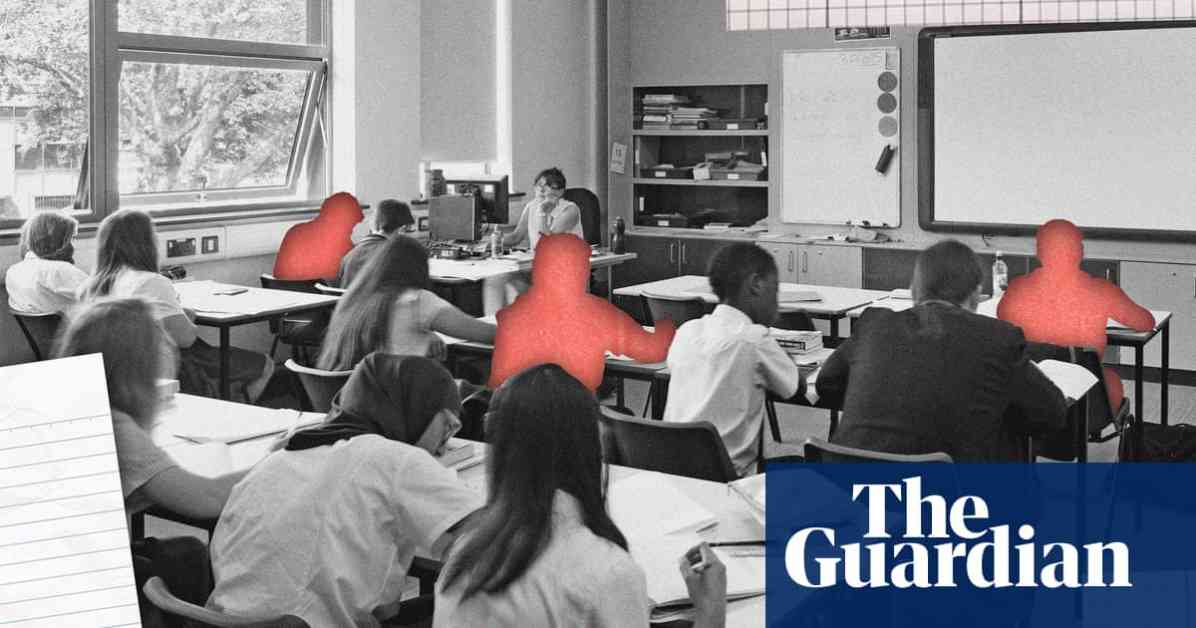Teachers returning to work next month will confront a worrying “behaviour bubble” as younger children who were most severely affected by the pandemic reach the teenage years renowned for peak classroom disruption. The warning from experts and school leaders in England comes as evidence shows that children of primary school age during the pandemic – when schools were closed to most pupils – have been accruing exclusions and suspensions at a record pace since moving to secondary school.
Impact of the Pandemic on Student Behavior
The most recent official figures, for 2022-23, show that the fastest increases in exclusions and suspensions were among a “bubble” of younger pupils in years 7 and 8. Those pupils will now be in years 9 and 10, when sanctions for misbehavior are traditionally the highest. Patrick Roach, the general secretary of the NASUWT teaching union, expressed concerns about the escalating levels of behavior issues post-pandemic and warned about potential future challenges.
“In the aftermath of the riots in many towns and cities during the summer, we also need to see government and other agencies stepping up to work with our schools and colleges to support vulnerable young people who are at risk of being drawn into violence,” Roach said. The impact of the pandemic on students’ mental health and behavior has been significant, with reports of increased aggression and defiance towards teachers.
Government Response and Strategies
A government source acknowledged the previous failures in addressing behavior issues in schools and emphasized the need for a support-first approach to regain control of classrooms. The Department for Education (DfE) has been analyzing behavior data to understand the root causes of poor behavior and has committed to providing access to mental health professionals in schools, introducing free breakfast clubs, and ensuring earlier intervention for pupils with special needs.
“The rising number of school suspensions and permanent exclusions are shocking, and show the massive scale of disruptive behavior that has developed in schools across the country in recent years, harming the life chances of children,” a DfE spokesperson stated. The government is developing a strategy to reduce child poverty and break down barriers to opportunity, recognizing the broader societal factors contributing to behavioral challenges in schools.
Challenges Faced by Educators
Teachers like Andrew Smith, who have observed the trend of rising exclusions among younger pupils and girls, anticipate significant challenges in the upcoming years. “Next year’s year 9s and year 10s could be the most challenging for many years. However, that may depend on whether schools have successfully addressed the behavior of those pupils in the years they have already been at secondary school,” Smith remarked. The disruptions caused by the pandemic, combined with societal factors, have created a complex environment for educators.
Tom Bennett, a DfE adviser on behavior management, highlighted the potential impact of the pandemic on students’ social skills and behavior. He emphasized the importance of providing a structured and supportive environment in schools to help students readjust and overcome behavioral challenges. While the effects of the pandemic on behavior may be significant, there is hope that with the right interventions, students can adapt and thrive in the classroom once again.
Long-Term Effects and Solutions
Pepe Di’Iasio, the general secretary of the Association of School and College Leaders, pointed out the long-term effects of underfunding in education and local services, which have contributed to the current behavior issues in schools. “The sad reality is that schools and children have been let down by more than a decade of underfunding both in education and the broader network of local services. This is the result,” Di’Iasio stated. Addressing the systemic challenges faced by schools requires a comprehensive approach that prioritizes support for students and educators.
Lee Wilson, the chief executive of the Outwood Grange Academies Trust, highlighted the impact of the pandemic on academic outcomes, attendance, and behavior, particularly among disadvantaged children. The disruptions caused by lockdowns and school closures have had a lasting effect on students, requiring schools to provide additional support and resources to address the challenges they face.
In conclusion, the predicted peak of post-pandemic bad behavior among pupils presents a significant challenge for educators and policymakers. Understanding the root causes of poor behavior, providing targeted interventions, and creating a supportive learning environment are essential steps towards addressing the behavior issues in schools. By working together to support students and address the underlying factors contributing to disruptive behavior, schools can create a positive and inclusive learning environment for all students.












